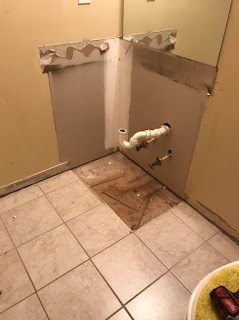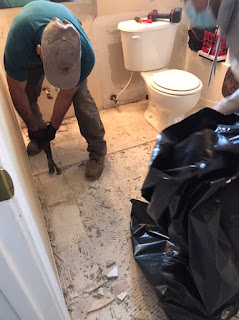Understanding Water Damage: Causes and Types
Water Damage in McDonough is a significant and often devastating issue many property owners face. It can result from various sources, and understanding its causes and types is crucial for effective mitigation and restoration. In this blog, we will delve into the common causes of water damage and the different types it manifests.
Causes of Water Damage
1. Weather-Related Factors:
a. Floods and Storms: Heavy rains, hurricanes, or severe storms can lead to flooding, causing extensive water damage to homes and businesses.
b. Snow and Ice: When snow and ice start to melt, it can cause issues for drainage systems. As a result, buildings may experience water seepage.
2. Plumbing Issues:
a. Leaking or Burst Pipes: Aging or damaged pipes can leak or burst, causing water to seep into walls, floors, and ceilings.
b. Clogged Drains: When drains become blocked, water can back up and overflow into living areas.
3. Appliance and Equipment Malfunctions:
a. Malfunctioning Water Heaters: A malfunctioning water heater can release a large volume of water, resulting in significant damage.
b. Leaking Washing Machines or Dishwashers: Wear and tear on these appliances can cause leaks that gradually damage flooring and adjacent areas.
4. HVAC Issues:
a. Air Conditioning Leaks: Air conditioning units can produce excess condensation, which, if not properly drained, can lead to water damage.
b. Faulty HVAC Systems: Problems with heating, ventilation, and air conditioning systems can cause leaks and moisture buildup.
5. Natural Disasters:
a. Earthquakes and Tsunamis: These disasters can cause immense water damage through flooding, structural damage, and infrastructure failure.
b. Wildfires: The loss of vegetation due to wildfires increases the risk of mudslides and flooding during rain events.
Types of Water Damage
1. Clean Water Damage:
a. This type of water damage originates from a clean water source, such as broken pipes, overflowing sinks, or rainwater.
b. It poses the least risk to human health initially, but if left untreated, clean water can become contaminated and escalate to higher categories.
2. Grey Water Damage:
a. Grey water contains contaminants that may cause discomfort or illness if ingested. It comes from sources like washing machines, dishwashers, or minor toilet leaks.
b. Proper protective measures and thorough cleaning are necessary to prevent health issues.
3. Black Water Damage:
a. Water that appears black is considered to be highly contaminated and may contain harmful pathogens, sewage, and other hazardous materials.
b. Severe health problems can arise from exposure to black water, and it is essential to prioritize safety and sanitation by implementing specialized cleanup and disinfection measures.
Understanding the causes and types of water damage is pivotal in addressing this issue promptly and effectively. Swift action and professional assistance can minimize damage and restore your property after a leak or flood.
If you are looking for a Water Removal Company in McDonough, contact Service Masters Restore.

.jpg)
.jpg)

Comments
Post a Comment